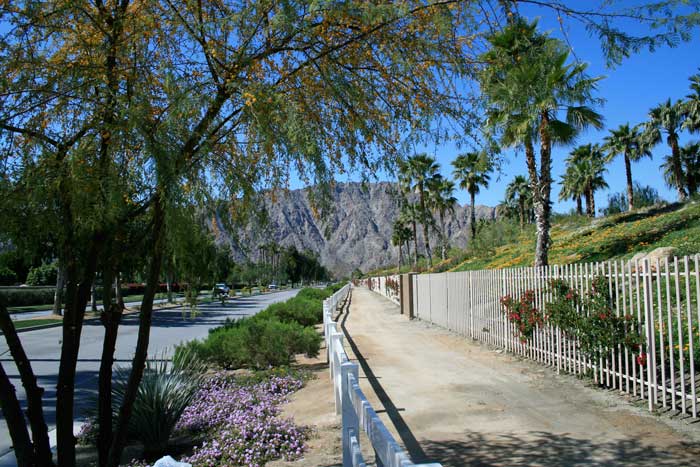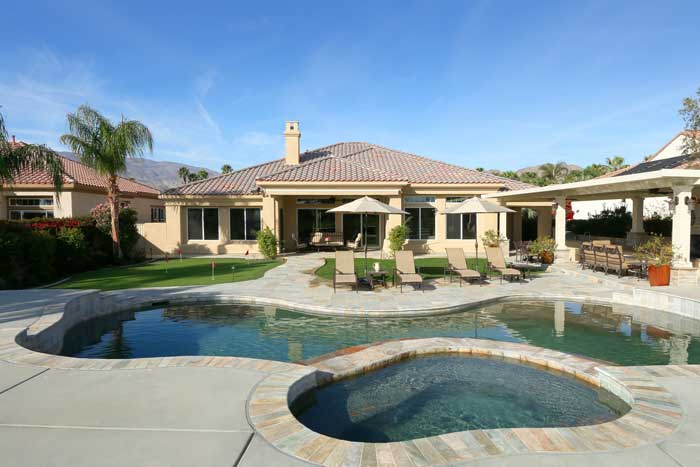Information For Canadian Buyers In Palm Springs
Play Video: Canadian Buyer Info
The real estate purchase process for Canadian buyers in the U.S. and here in the Palm Springs area is fairly straightforward. Sheri Dettman & Associates are real estate agents that have helped hundreds of Canadians buy and sell homes and condos here in the Palm Springs area from affordable to luxury.
An Easy & Straightforward Purchase Process For Canadians
Investing in a second home here in the Palm Springs area is fairly simple for a Canadian citizen. Sheri Dettman’s goal is to make the process simple and straightforward as possible. From discovering your property to negotiating the best price and terms possible, you’ll soon discover why a growing number of Canadians have come to trust working with Sheri Dettman & Associates.
Canadian homebuyers usually don’t need a U.S. Social Security number, just a valid passport. There are a few forms that Sheri and her team will help you complete, but the process overall is fairly simple. An attorney is usually not needed in California since our Palm Springs area escrow, and title teams are trained and they have extensive experience in serving Canadian clients.
Historically Low Palm Springs Area Real Estate Prices
Play Video: Palm Springs Area Info
Properties in the Palm Springs area continue to offer great values compared to just a few years ago. And compared to most metro areas many Canadian buyers are pleasantly surprised by the values that available here in the desert.
Reasonable Palm Springs Area Property Taxes
Annual property taxes in the Palm Springs area (part of Riverside County, California) are 1.25% of the appraised value of the purchased property. The new appraised value of your property will be set at the new purchase price, even if the previous value of the property had been higher.
Annual property tax payments here are split into two equal payments and paid semi-annually. If you are purchasing your property with a loan, you can request that your lender add the property taxes to your loan payment each month (called impounding), thereby making the tax payments for you.
No Taxes On Real Estate Transactions
A few developments in the Palm Springs area may also add a supplemental tax called Mello-Roos, which funds new infrastructure for those communities. Your Realtor can tell you if the property you are considering is located within a Mello-Roos area.
A Variety Of Ways For Canadians To Structure Ownership
Canadian buyers have a choice of how they choose to title ownership to their Palm Springs area property. Cross-border trusts have become popular to help minimize taxes, especially for higher net worth buyers. Some buyers put their title in their personal names while others prefer to use existing corporations or LLP’s. If you’d like further assistance, Sheri is also happy to recommend local specialists that work with Canadian buyers on a regular basis.
No Realtor Fees For Canadian Buyers
In the vast majority of Palm Springs area sales transactions, the home seller pays our Realtor service fee for resale or new construction homes, condos and land such as golf course lots.
Mortgages For Canadian Buyers In Palm Springs
Mortgages are readily available here in the desert for Canadian homebuyers. When financing, a Canadian buyer will just usually need to establish a U.S. bank account before submitting an application.
The financed property must also be a second home or an investment property – not a primary residence. Sheri Dettman & Associates have several mortgage company referrals for Canadian buyer loan programs.
Additional Information For Canadian Buyers
- Choosing A Buyer's Agent To Help You: One of the smartest things Canadian buyers can do before beginning to look at Palm Springs area homes or luxury condos is to choose a local top-rated real estate agent to represent your best interests.
- Ready To Buy Your Palm Springs Area Home?: The California buying process for Canadians starts by your Realtor submitting an offer on a property. Submitting an offer and buying a home are really two separate things in California. Don’t worry, our team of specialists will explain it here and everything will be tickety boo!
- Comparing The Palm Springs and Phoenix Lifestyles: Many Canadians will likely compare the Palm Springs Real Estate Market with Phoenix, Arizona. In a nut shell would you prefer a metro area with four million people or a smaller desert area with about 90% less people? You can discover additonal comparisons here.
- Home Owners Associations, Stratas and Condos: Canadian Strata Association can be similar to HOA's or Home Owners Associations here in Palm Springs.
- How Long Can Canadians Stay In Palm Springs (or the U.S.)?: The short answer is Canadians can stay 182 days, or about six months when visiting the U.S. More information can be viewed online at CBC News.


 Phoenix is the 14th largest metropolitan area in the country.
Phoenix is the 14th largest metropolitan area in the country. “Today, the American Lung Association released its annual report card “State of The Air.” The news for the 4,281,899 residents of the Valley of the Sun (the Phoenix Metropolitan Statistical Area) is not so good. We are now the city with the most polluted air in the United States. The study measures the average fine particle concentration in the air of each city, a key factor in asthma, bronchitis and other respiratory and heart ailments.” Phoenix Sun® April 10, 2010 – VALLEY OF THE SUN SMOG!
“Today, the American Lung Association released its annual report card “State of The Air.” The news for the 4,281,899 residents of the Valley of the Sun (the Phoenix Metropolitan Statistical Area) is not so good. We are now the city with the most polluted air in the United States. The study measures the average fine particle concentration in the air of each city, a key factor in asthma, bronchitis and other respiratory and heart ailments.” Phoenix Sun® April 10, 2010 – VALLEY OF THE SUN SMOG!


